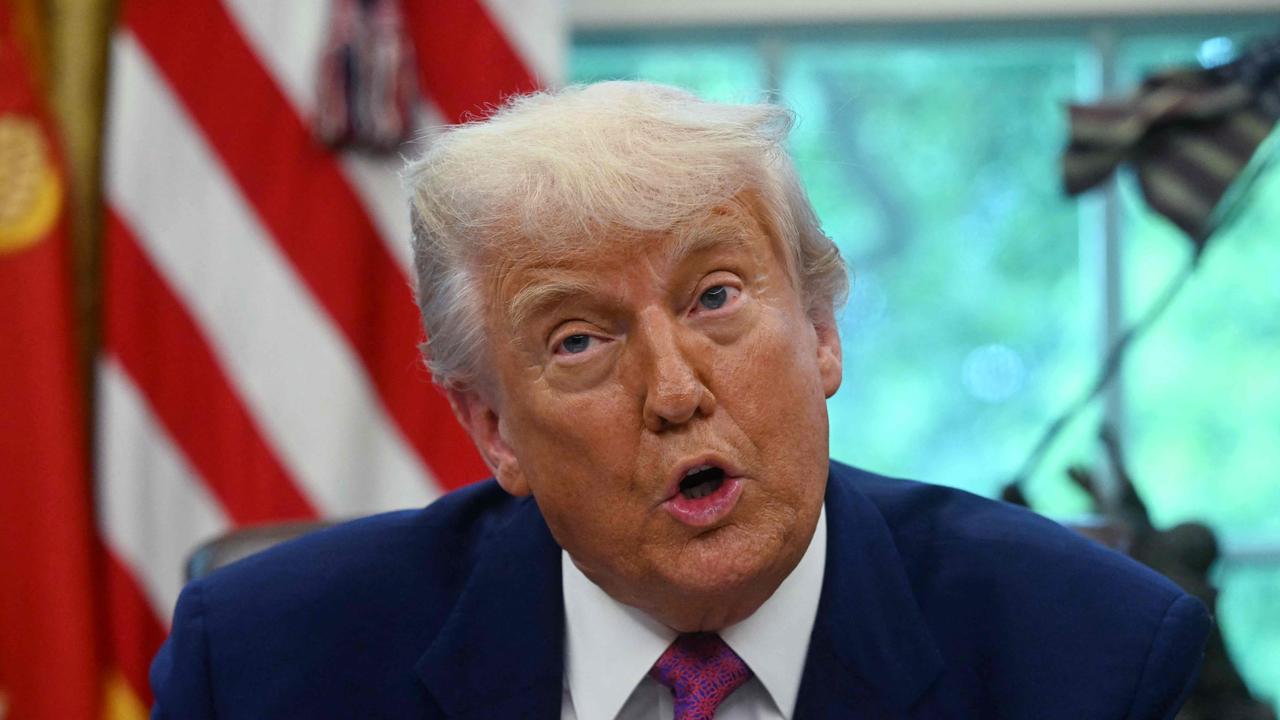Jim Chalmers warns of ‘dark shadows’ over global economy after rates cut
Jim Chalmers has issued a grim warning just days after the Reserve Bank cut rates for the second time this year.
Breaking News
Don't miss out on the headlines from Breaking News. Followed categories will be added to My News.
Jim Chalmers has warned of “dark shadows” looming over the global economy just days after the Reserve Bank of Australia cut interest rates for a second time this year.
The RBA this week confirmed market predictions and delivered a 0.25 percentage point cut, bringing the official cash rate to 3.85 per cent.
It was welcome news for mortgage holders, many of whom could save hundreds on monthly repayments.
Appearing on a podcast on Wednesday afternoon, the Treasurer said the RBA’s decision was “very good news” and showed the Albanese government’s efforts to put downward pressure on inflation were working.

But Mr Chalmers warned it also recognised “this very uncertain global economic environment”.
“The language that the Reserve Bank governor used yesterday and that the board used in their statement is not dissimilar to some of the things that I’ve been saying for some time now,” he told The Conversation’s Politics with Michelle Grattan.
“The escalating trade tensions, the weakness in the Chinese economy, conflict in the Middle East and Eastern Europe, all of these things are casting a dark shadow over the global economy, and that has implications for us as well.”
US President Donald Trump last month included Australia in blanket 10 per cent tariffs on most goods despite a trade surplus in the US’s favour.
It dealt a fresh blow to Canberra’s relationship with Washington, which was already bruised on the back of Australia’s inclusion in 25 per cent tariffs on steel and aluminium.
But two-way trade is just one cause for concern – the Trump administration’s imposts have caused grief for Australia’s other key trading partners, including China.

With the Chinese economy slowing down, conflicts raging on multiple continents, and US tariffs and counter tariffs straining global trade and traditional alliances, many experts – including RBA governor Michele Bullock – have not ruled out a recession in Australia.
Mr Chalmers noted that both the Reserve Bank and the Treasury “expect our economy to continue to grow” over the next financial year but again repeated the “international environment is casting a dark shadow over the global economy and our own economy”.
“And that’s why it’s so important that the Australian economy has got the characteristics that you would want going into this volatility and unpredictability – the lower inflation, the higher wages, the low unemployment, the budget is in better nick than most countries around the world, we’re starting to see interest rates come down, the market’s expecting further interest rate cuts,” he said.
EU deal
Many of Washington’s key allies and economic partners, including Australia, have sought to trade around the US in the wake of Mr Trump’s levies.
Trade Minister Don Farrell has spearheaded talks to get a free trade deal across the line with Europe.
He has had several meetings with EU officials this year, including with his counterpart Maros Sefcovic on Tuesday.
Free trade means more jobs and a stronger economy.
— Anthony Albanese (@AlboMP) May 18, 2025
That’s why we’re working towards a free trade agreement with the European Union.
Today I met with EU Commission President @vonderleyen to discuss trade, and our work to support global peace and security. pic.twitter.com/KB4AdV4HAk
“It’s more important than ever to advance free and fair trade,” Senator Farrell said.
“A trade deal with the European Union has the potential to deliver great opportunities for Australian businesses and jobs.
“Better access to the EU means better access to a market of around 450 million people and a GDP of $US20 trillion ($A31 trillion).”
Senator Farrell also suggested earlier this week that the EU could give up strict product naming rights – a key issue that derailed similar talks in late 2023.
That would relax restrictions on product names that relate to specific regions, such as feta or prosecco.
In return, it has been reported that Australia was mulling scrapping the $5.2bn luxury vehicle tax.
Prime Minister Anthony Albanese also pushed for a deal when he met EU leaders on the sidelines of Pope Leo XIV’s inauguration in Rome.
Originally published as Jim Chalmers warns of ‘dark shadows’ over global economy after rates cut






